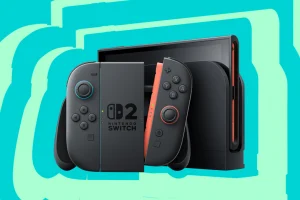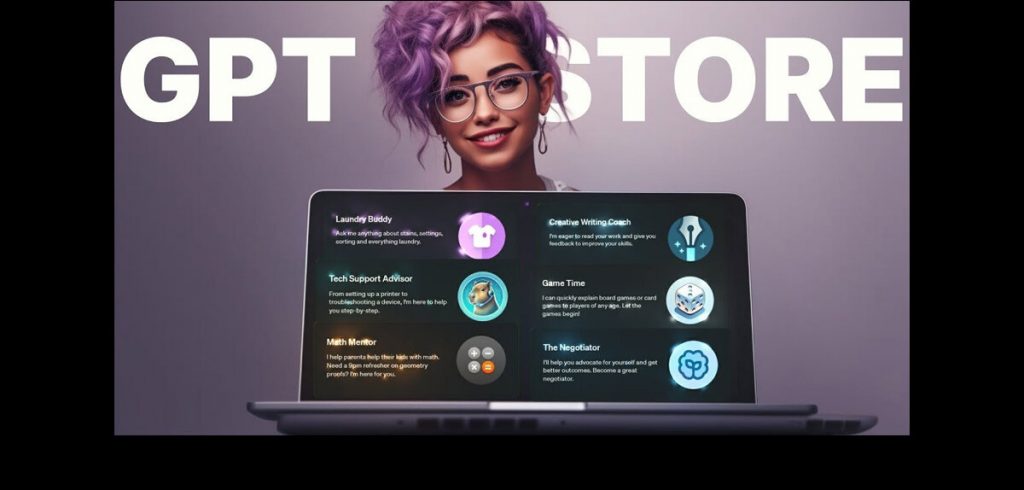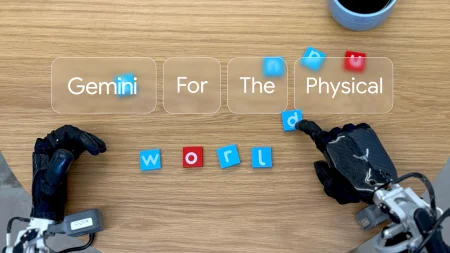GPT Store offers AI-based applications, ChatGPT plugins are extensions to customize the ChatGPT language model on compatible browsers, allowing users to enhance its capabilities and personalize their experience.
GPT stores have been drawing comparisons to established platforms like the App Store and Google Play, which have revolutionized the way developers distribute and monetize their mobile applications. It is a centralized marketplace for developers and companies to add their creation and reach relevant user base. In January 2024, OpenAI declared the GPT store open for business. More than 3 million custom versions of ChatGPT were created by users within a month of its announcement. ChatGPT Plus users and those with access to Team and Enterprise plans can explore custom GPTs developed by almost anyone.
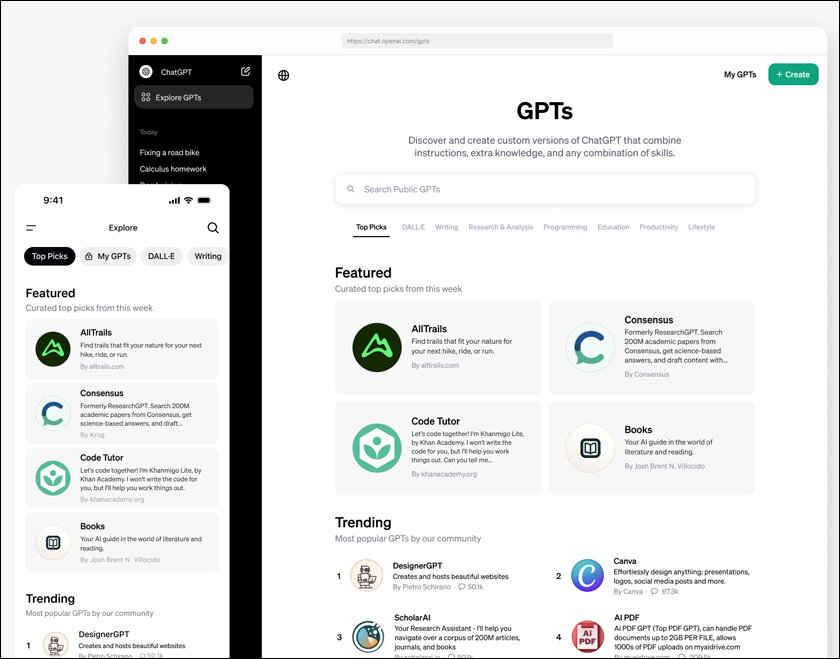
(Image Credit: OpenAI)
But what are custom GPTs?
A good example of this could be a custom Chatbot. It is an extension of an application where it is a pro version of a basic ChatGPT search application. Premium ChatGPT users can now purchase and trade bespoke chatbot agents built using the company’s advanced language models.
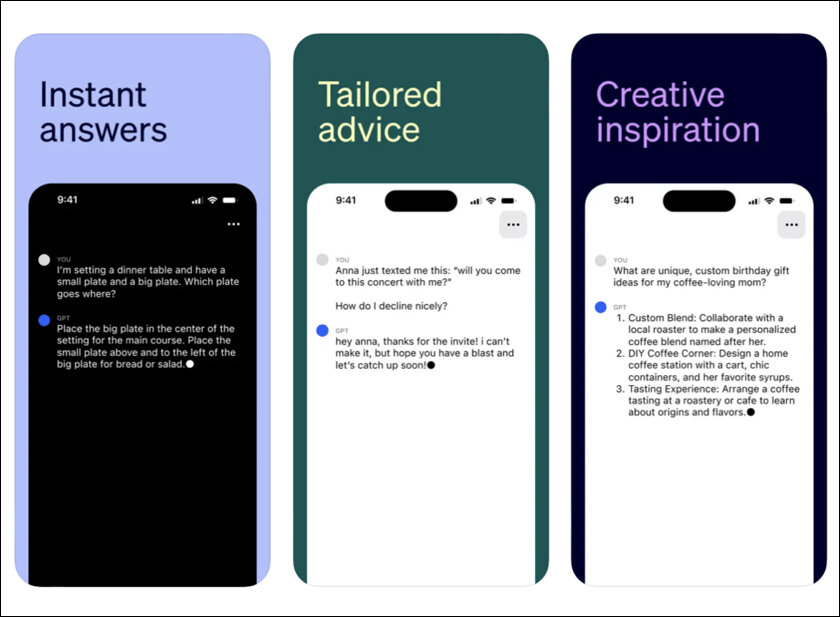
Is this any different from typing on a normal ChatGPT window?
It is to an extent that the answers are curated to custom the responses provided, however, if a ChatGPT prompt is like a ‘command-prompt’ type interface, while this module helps interaction. SEOs are the first to leverage this, for content creation, keyword research, and technical optimizations.
How are these different from Chat-GPT plug ins?
ChatGPT’s ability to understand and generate human-like text makes it a powerful tool to use in all phases of the content creation process. Additionally, the tool’s natural language processing (NLP) capabilities can aid in the identification of relevant keywords and the development of effective strategies. While GPT Store offers AI-based applications, ChatGPT plugins are extensions to customize the ChatGPT language model on compatible browsers, allowing users to enhance its capabilities and personalize their experience. These however are not fully vetoed by ChatGPT as they are not in the GPT realm like GPTstore. A good example where a user could create a plugin that automatically summarizes long emails or generates marketing copy based on specific inputs. In a nutshell, it helps increase productivity, improve information accuracy and create a personalized experience.
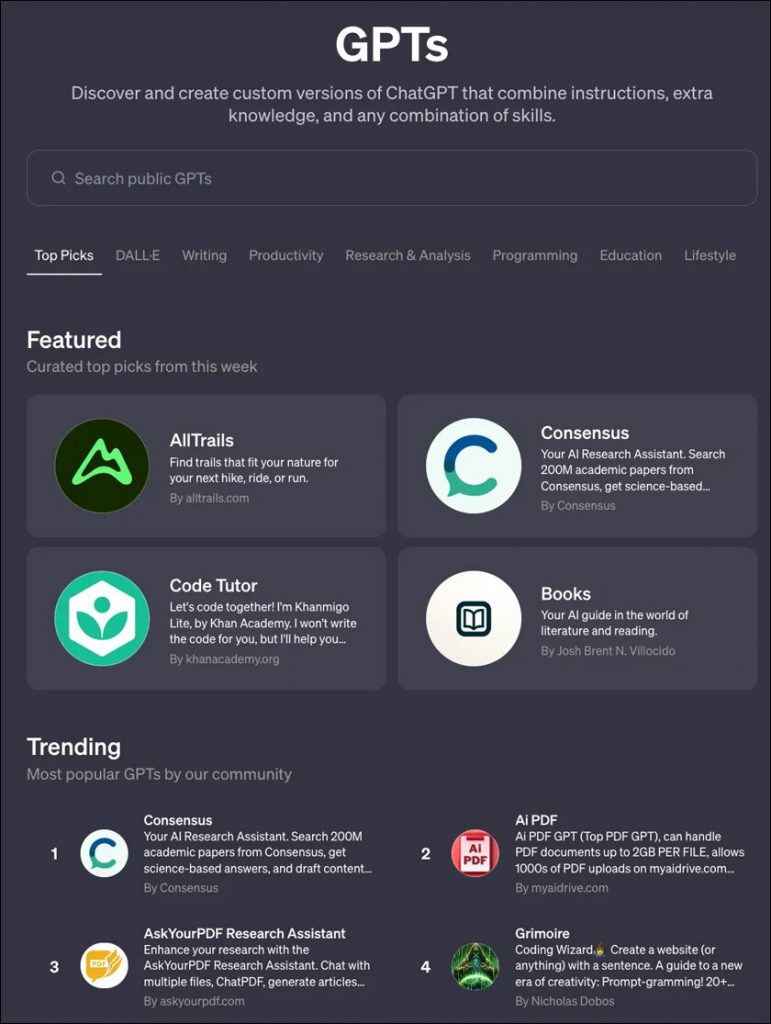
If you would like to test out, some of the common ones are
- Assistant for ChatGPT: Provides a user-friendly interface with additional features such as code generation, translation, and summarization.
- ChatGPT Writer: Offers writing assistance with features like grammar checking, plagiarism detection, and tone adjustment.
- PowerCoders for ChatGPT: Enhances coding capabilities with code completion, error checking, and refactoring tools.
- ChatGPT Chrome Extension: Integrates ChatGPT with the Chrome browser, allowing users to access the language model directly from the address bar.
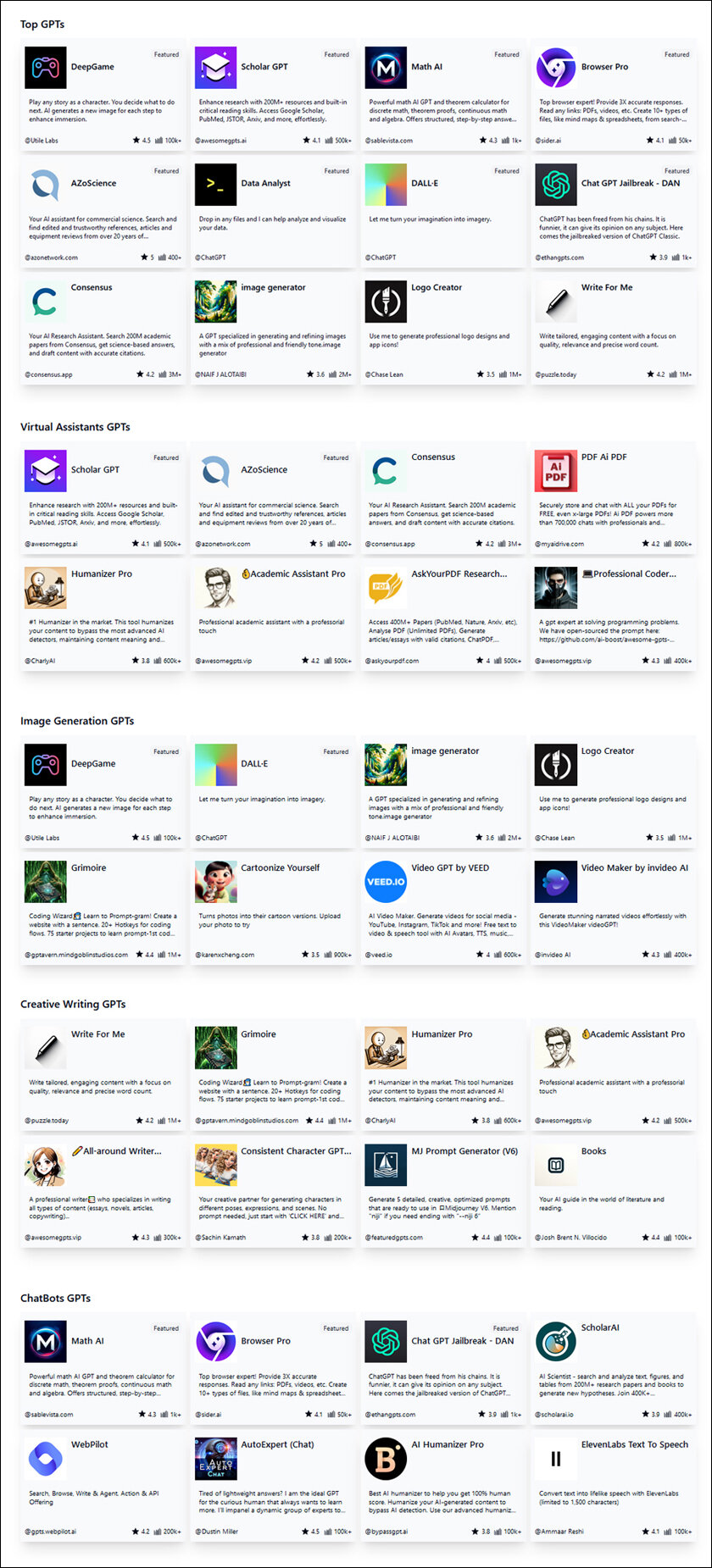
So are they the same as App Store or Google Play?
They are similar but not the same within the realm of generative AI. Developers can now publish their GPT-powered apps, games, and other interactive experiences within GPT stores, making them accessible to a wide audience of users. This helps developers to tap into the immense potential of GPT’s language generation and understanding capabilities, creating immersive and engaging experiences that were previously unimaginable.
What it effectively does is facilitate a discovery pattern and install custom GPT-based content. It is effectively a listed catalog of apps and games, read reviews and ratings by users. It is however a very good source for supporting developers for their work and forming a no-code based platform for non-coders like me. It also provides easy monetization options to generate revenue from their creations, effectively integrating technical and commercial aspects for a developer. So in a way, it helps democratization of generative AI and will continue to evolve over time.
In case you missed:
- None Found


